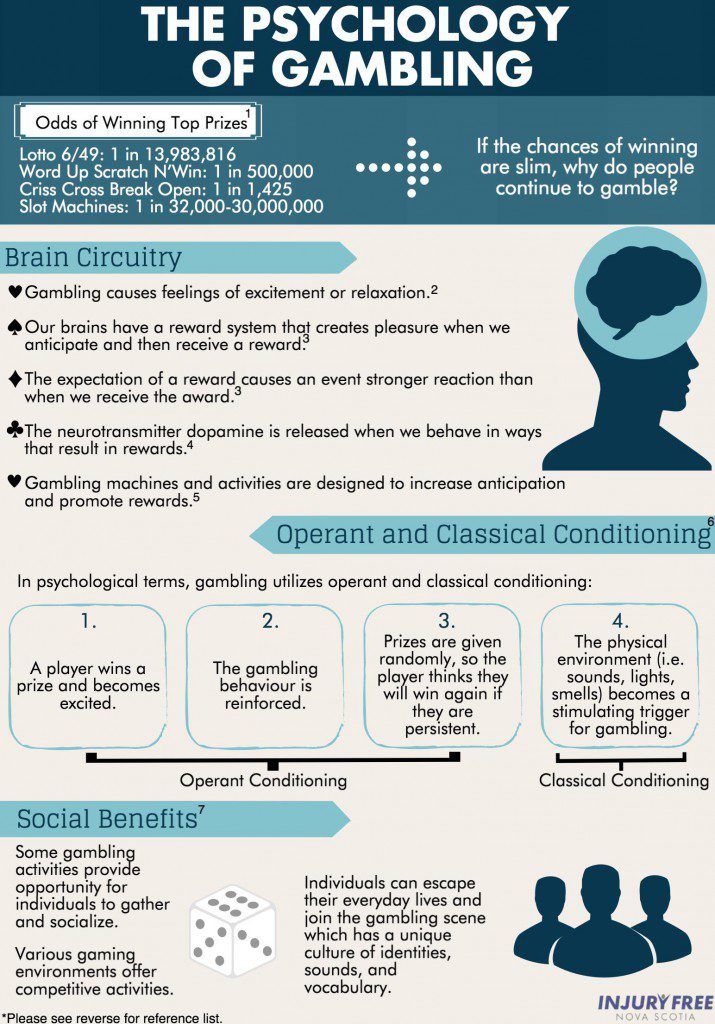Gambling is a popular form of entertainment that has been around for centuries. While for most people it is just a harmless pastime, for some individuals, gambling can become a destructive and addictive behavior. In this article, we will explore the psychology behind gambling addiction, including the factors that contribute to its development and the effects it can have on individuals and their loved ones.
What is Gambling Addiction?
Gambling addiction, also known as compulsive gambling or pathological gambling, is a behavioral disorder characterized by a persistent and uncontrollable urge to gamble, despite negative consequences. People with gambling addiction may experience intense cravings to gamble, engage in risky behaviors to continue gambling, and experience withdrawal symptoms when unable to gamble.
Factors Contributing to Gambling Addiction
Several factors can contribute to the development of gambling addiction, including psychological, social, and biological factors. Some individuals may be more predisposed to developing an addiction due to genetic factors, while others may be influenced by their environment or upbringing.
Psychological Factors
Psychological factors such as impulsivity, low self-esteem, and a need for excitement or escape can contribute to the development of gambling addiction. Individuals may turn to gambling as a way to cope with stress, anxiety, or other negative emotions, and use it as a form of self-medication.
Social Factors
Social factors such as peer pressure, cultural norms, and exposure to gambling at a young age can also play a role in the development of gambling addiction. Individuals who are surrounded by friends or family members who gamble may be more likely to engage in gambling themselves, leading to the development of an addiction.
Biological Factors
Biological factors such as genetics and brain chemistry can contribute to the development of gambling addiction. Some individuals may have a genetic predisposition to addictive behaviors, while others may have imbalances in neurotransmitters that affect their reward system and impulse control.
The Effects of Gambling Addiction
Gambling addiction can have devastating effects on individuals and their loved ones. It can lead to financial problems, relationship conflicts, legal issues, and mental health problems. Individuals with gambling addiction may experience feelings of guilt, shame, and hopelessness, and may struggle to regain control over their behavior.
Treatment Options
Fortunately, there are treatment options available for individuals struggling with gambling addiction. Therapy, support groups, and medication can help individuals address the underlying causes of their addiction and develop healthy coping mechanisms. It is important for individuals with gambling addiction to seek help and support from trained professionals to overcome their addiction and rebuild their lives.
Conclusion
In conclusion, gambling addiction is a complex and challenging behavioral disorder that can have serious consequences for individuals and their loved ones. By understanding the psychology behind gambling addiction and addressing the underlying causes of the behavior, individuals can overcome their addiction and lead fulfilling and healthy lives.


